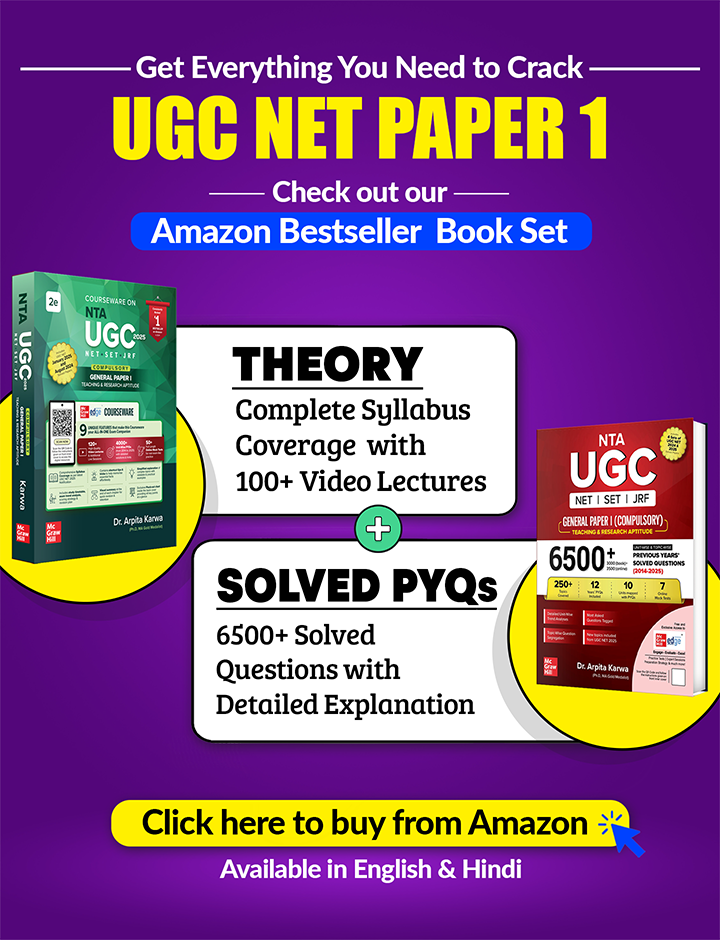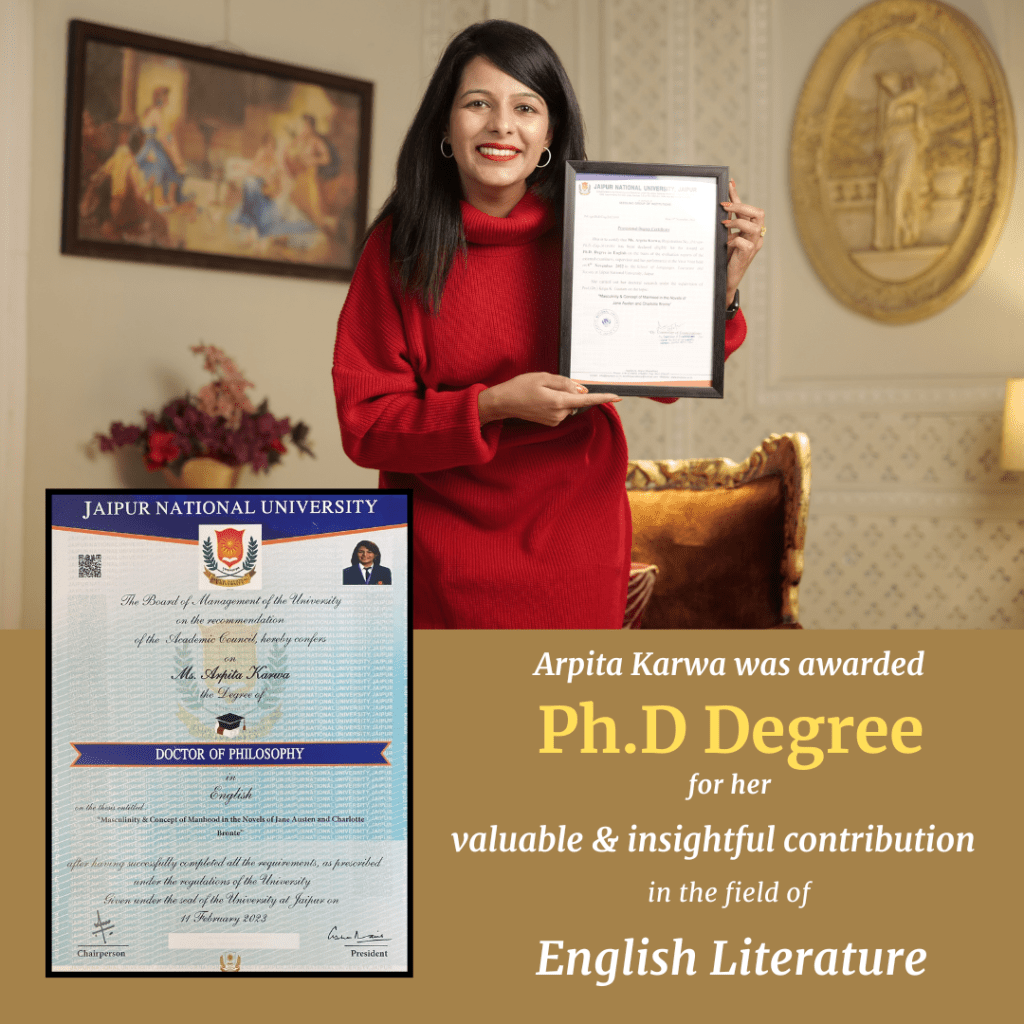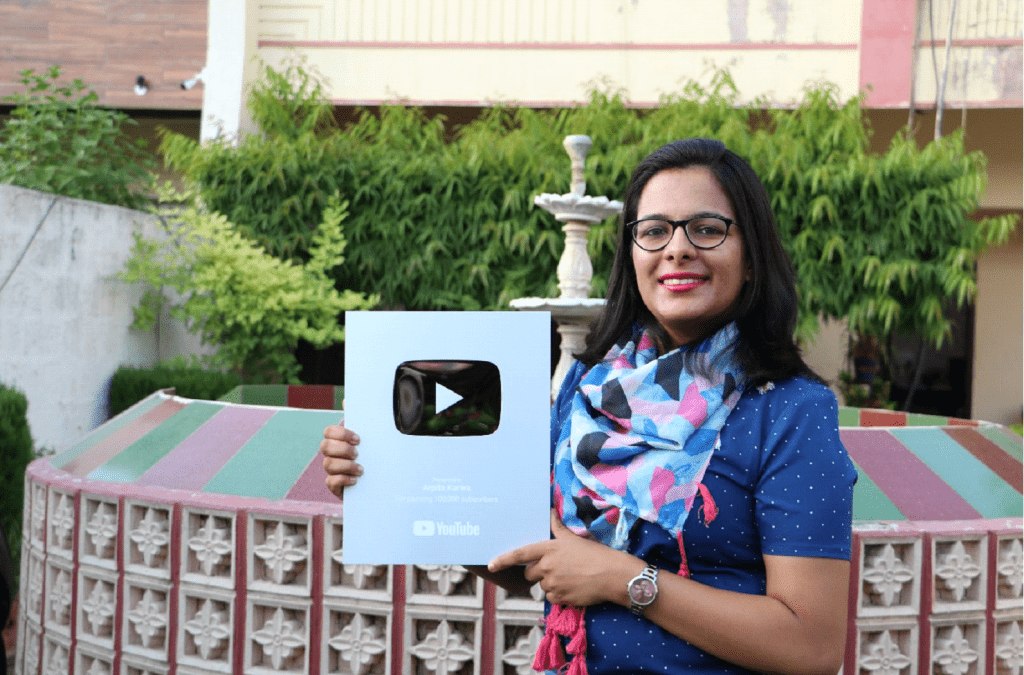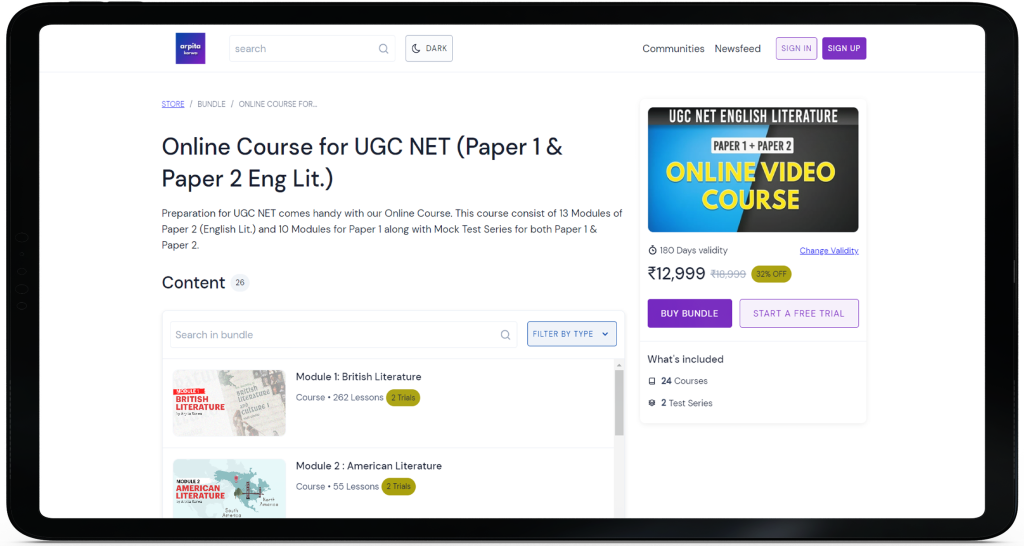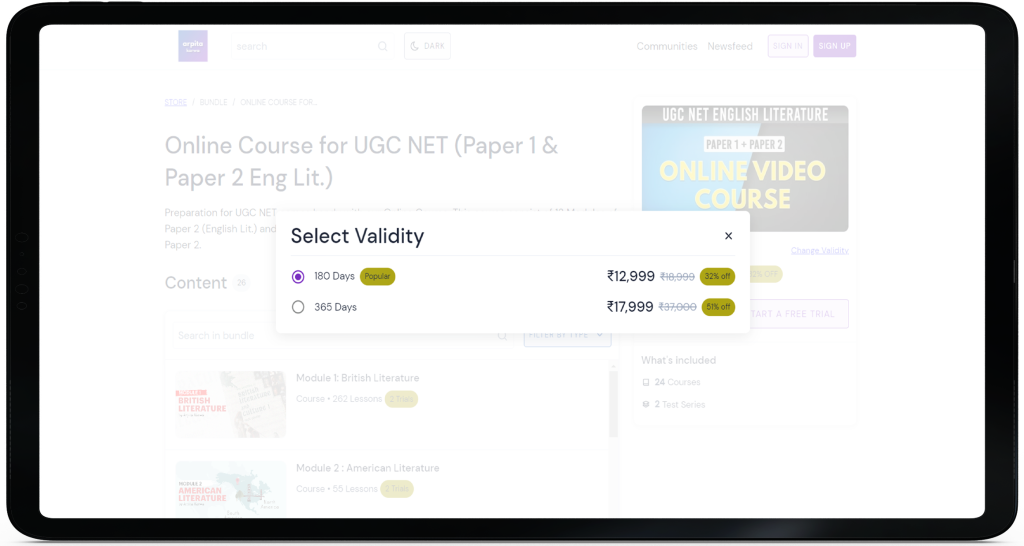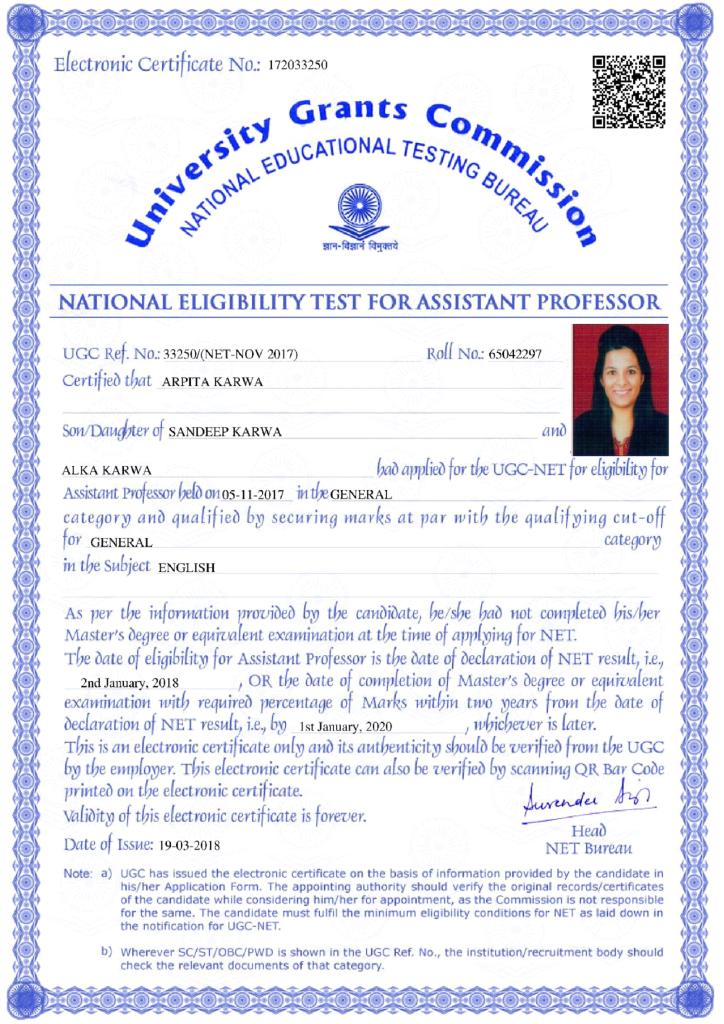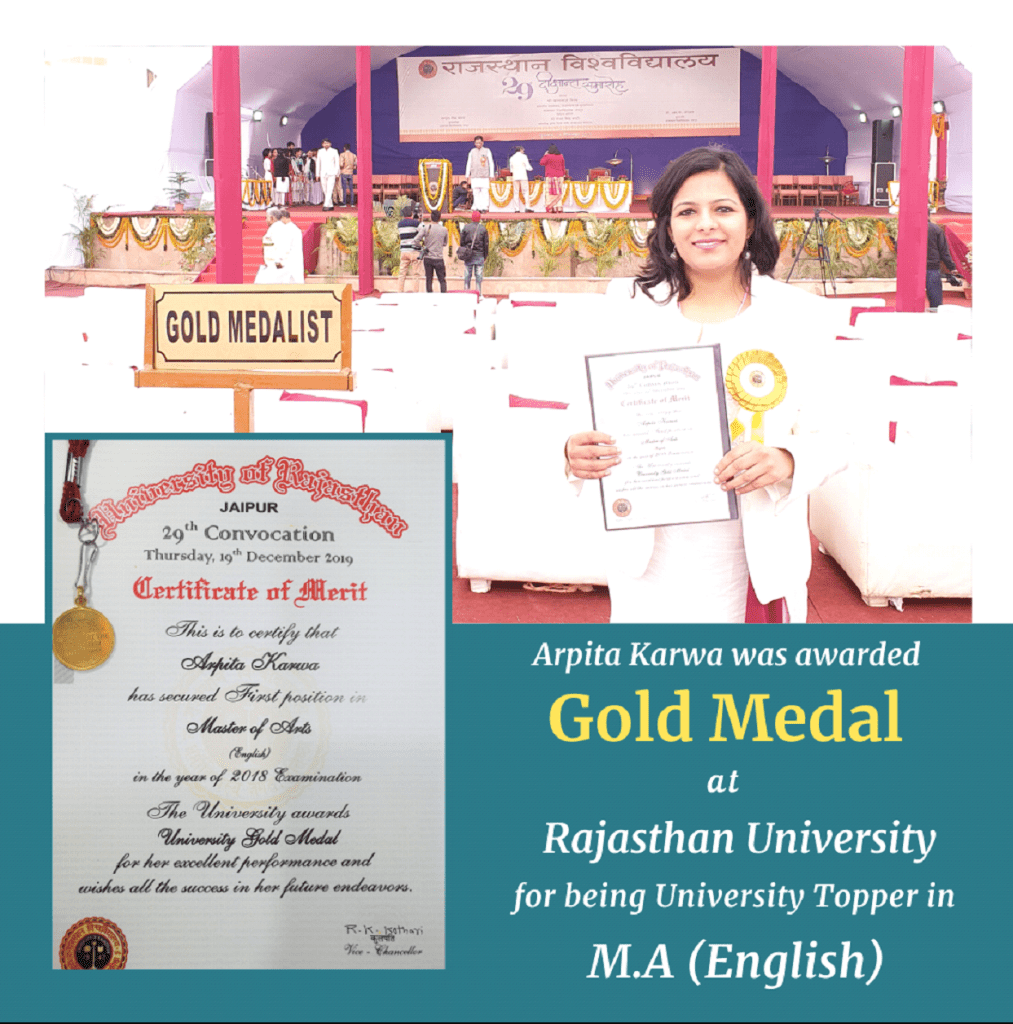UNIVERSITY OF DELHI M.A. ENGLISH, ENTRANCE EXAM 2016
June 19, 2023 2023-12-11 18:38UNIVERSITY OF DELHI M.A. ENGLISH, ENTRANCE EXAM 2016
University of Delhi M.A. English, Entrance Exam 2016
UOD
M.A. ENGLISH ENTRANCE EXAM, 2016
Q.1) Identify the title of the plays from which the lines given below are extracted:
(i) When we are born, we cry that we are come to this great stage of fools.
(ii) Some are born great, some achieve greatness, and some have greatness thrust upon’em.
(iii) Fair is foul, and foul is fair: Hover through the fog and filthy air. fall.
(iv) Some rise by sin, some by virtue
[1] (i) King Lear, (ii) Twelfth Night, (iii) Macbeth, (iv) Measure for Measure
[2] (i) Twelfth Night, (ii) King Lear, (iii) Measure for Measure, (iv) Macbeth
[3] (i) Measure for Measure, (ii) King Lear, (iii) Macbeth, (iv) Twelfth Night
[4] (i) Twelfth Night, (ii) King Lear, (iii) Macbeth, (iv) Measure for Measure
Answer: (i) King Lear, (ii) Twelfth Night, (iii) Macbeth, (iv) Measure for Measure
Directions: The next three questions are based on the following excerpt from a play:
She never told her love, But let concealment, like a work i’th’ bud,
Feed on her damask cheek. She pined in thought,
And with a green and yellow melancholy She sat like Patience on a monument,
Smiling at grief. Was not this love indeed?
Q.2) The passage describes a woman who is
[1] Overwhelmed by regret for the man she has lost
[2] Worried that her change of heart will be discovered
[3] Consumed by the love she holds in secrecy
[4] Overcome with guilt for betraying her lover
Answer: Consumed by the love she holds in secrecy
Q.3) Lines two and five contain examples of…….
[1] Allusion
[2] Metaphor
[3] Simile
[4] Alliteration
Answer: Simile
Q.4) Who is the author of these lines?
[1] Christopher Marlowe
[2] William Shakespeare
[3] Ben Jonson
[4] John Webster
Answer: William Shakespeare
Q.5) Which, among the following statements, is not correct about Iago?
[1] He a man with negative capability.
[2] He is considered to be an honest man.
[3] He is a Machiavel.
[4] He is a man of motiveless malignity.
Answer: He a man with negative capability
Q.6) Identify the source of the following extract:
In th’oldedayes of the KyngArthour, Of which that Britons speken greet honour,
All was this land fulfild of fayerye. The elf-queen, with hir jolycompaignye,
Dauncedfulofte in many a grenemede; This was the olde opinion, as I rede, I speke of many hundred yeres ago; But now can no man see none elves mo.
[1] John Donne’s “On His Mistress Going to Bed”
[2] Alfred L. Tennyson’s “The Lady of Shalott”
[3] Christina Rossetti “The Goblin Market”
[4] Geoffrey Chaucer’s “The Wife of Bath’s Tale”
Answer: Geoffrey Chaucer’s “The Wife of Bath’s Tale”
Q.7) Match the lines given in Set A with the names of the plays given in Set B:
Set A
(a) Cover her face; mine eyes dazzle. She died young.
(b) After life’s fitful fever he sleeps well.
(c) 1 glory/More in the cunning purchase of my wealth/Than in the glad possession….
(d) Is this the face that launched a thousand ships…
Set B
(1) Volpone
(ii) Duchess of Malfi
(iii) Dr. Faustus
(iv) Macbeth
[1] a-i, b-ii, c-iv, d-iii
[2] a-iv, b-iii, c-i, d-ii
[3] a-ii, b-iv, c-i, d-iii
[4] a-ii, b-i, c-iv, d-iii
Answer: a-ii, b-iv, c-i, d-iii
Q.8) Match the lines given in Set A with the names of the authors given in Set B:
Set A
(a) I find that there is nothing barbarous or savage in this nation…. every one gives the title of barbarism to everything that is not in use in his own country.
(b) These are their laws and rules in relation to robbery, and it is obvious that they are as advantageous as they are mild and gentle.
(c) How slightly soever I am esteemed in the common vogue of the world……… yet it is from my influence alone that the whole universe receives her ferment of mirth and jollity.
(d) Accordingly, we may affirm that to be true art which does not appear to be art; nor to anything must we give greater care than to conceal art, for if it is discovered it quite destroys our credit…
Set B
(i) Castiglione
(ii) Erasmus
(iii) Thomas More
(iv) Montaigne
Codes:
[1] a-i, b-ii, c-iii, d-iv
[2] a-iv, b-iii, c-i, d-ii
[3] a-iii, b-i, c-iv, d-ii
[4] a-iv, b-iii, c-ii, d-i
Answer: a-iv, b-iii, c-ii, d-i
Q.9) What is Chaucer’s A Treatise on the Astrolabe on?
[1] Gardening
[2] Alchemy
[3] Philosophy
[4] Astronomy
Answer: Astronomy
Q.10) What is Milton’s Aeropagitica a treatise on?
[1] Free speech
[2] Divorce
[3] Regicide
[4] Gardening
Answer: Free speech
Q.11) Which periodical that represented a new approach to journalism featuring cultivated essays on contemporary manners/morals did Richard Steele bring out beginning 1709 and publish for two years?
[1] The Tatler
[2] The Idler
[3] The Romancer
[4] The Dial
Answer: The Tatler
Q.12) In Thomas Gray’s “Elegy Written in a Country Churchyard,” what does the speaker celebrate?
[1] “The knell of parting day”
[2] The worth of all human beings
[3] The lives of great poets and politicians
[4] The “boast of heraldry, the pomp of power”
Answer: The worth of all human beings
Q.13) Who called Shelley “a beautiful and ineffectual angel beating in the void his luminous wings in vain”?
[1] Walter Pater
[2] A.C. Swinburne
[3] Matthew Arnold
[4] T.S. Eliot
Answer: Matthew Arnold
Q.14). Which among the following is the theme of Tennyson’s Poem ‘The Princess’?
[1] Queen Victoria’s coronation
[2] Industrial Revolution
[3] Women’s education and rights
[4] The rise of democracy
Answer: Women’s education and rights
Q.15) “My own great religion is a belief in the blood, the flesh as being wiser than the intellect.” Who wrote these lines?
[1] Graham Greene
[2] D.H. Lawrence
[3] Charles Dickens
[4] Jane Austen
Answer: D.H. Lawrence
Q.16) Match the names of the writers in column (A) with their pen names of column (B):
Column A
(a) Mary Ann Evans
(b) Charles Dickens
(c) Anne Bronte
(d) Charles Lamb
Column B
(i) Acton Bell
(ii) Elia
(iii) George Eliot
(iv) Boz
[1]a-i, b-ii, c-iv, d-iii
[2] a-ii, b-iv, c-iii, d-i
[3] a-i, b-ii, c-iii, d-iv
[4] a-iii, b-iv, c-i, d-ii
Answer: a-iii, b-iv, c-i, d-ii
Q.17) “We grope together And avoid speech Gathered on this beach of the tumid river”
From which poem are the above lines taken?
[1] “The Waste Land”
[2] “The Hollow Men”
[3] “Rhapsody on a Windy Night”
[4] “Four Quartets”
Answer: “The Hollow Men”
Q.18) Where is the line “Mistah Kurtz… he dead” taken from?
[1] Alice Walker’s The Colour Purple
[2] Chinua Achebe’s Things Fall Apart
[3] Joseph Conrad’s Hearth of Darkness
[4] Virginia Woolf’s Mrs. Dalloway
Answer: Joseph Conrad’s Hearth of Darkness
Directions: The next five questions are based on the following extract from Rudyard Kipling’s The Jungle Book:
Mowgli stood upright – the fire pot in his hands. Then he stretched out his arms, and yawned in the face of the Council; but he was furious with rage and sorrow, for, wolflike, the wolves had never told him how they hated him. “Listen you!” he cried. “There is no need for this dog’s jabber. Ye have told me so often tonight that I am a man (and indeed I would have been a wolf with you to my life’s end) that I feel your words are true. So I do not call ye my brothers any more, but sag [dogs], as a man should. What ye will do, and what ye will not do, is not yours to say. That matter is with me; and that we may see the matter more plainly, I, the man, have brought here a little of the Red Flower which ye, dogs, fear.”
He flung the fire pot on the ground, and some of the red coals lit a tuft of dried moss that flared up, as all the Council drew back in terror before the leaping flames.
Mowgli thrust his dead branch into the fire till the twigs lit and crackled, and whirled it above his head among the cowering wolves.
Q.19) What values are in primary opposition in the above extract?
[1] Love and hate
[2] Freedom and fear
[3] Joy and sorrow
[4] Laughter and weeping
Answer: Love and hate
Q.20) Between which among the following is fire a marker of difference?
[1] The human and animal worlds
[2] The government and its subjects
[3] The jungle and the village
[4] Predators and their quarry
Answer: The human and animal worlds
Q.21) Which among the following is an appropriate description of the emotional journey that Mowgli begins to undertake here?
[1] Right of way
[2] Rite of passage
[3] Rule of law
[4] Rule of the road
Answer: Rite of passage
Q.22) The code that is in the process of being challenged here has to do primarily with a sense of…….
[1] Belonging
[2] Law
[3] Love
[4] Discipline
Answer: Belonging
Q.23) The use of the term ‘Red Flower’, to indicate fire is an example of….. .
[1] Allegory
[2] Synecdoche
[3] Euphemism
[4] Personification
Answer: Euphemism
Directions: The next two questions are based on the following extract:
And once the old world has turned on its axle so that the new dawn can dawn, then, ah then! all the women will have wings, the same as I. This young woman in my arms, whom we have found tied hand and foot with grisly bonds of ritual, will suffer no more of it; she will tear off her mind forg’d manacles, will rise and fly away.
Q.24) What is the source of this quotation?
[1] Angela Carter’s Nights at the Circus
[2] Simone de Beauvoir’s The Second Sex
[3] Julia Kristeva’s Desire in Language
[4] Gayatri Chakravorty Spivak’s Outside in the Teaching Machine
Answer: Angela Carter’s Nights at the Circus
Q.25) Which text does the final sentence of the passage allude to?
[1] T S Eliot’s The Waste Land
[2] William Faulkner’s The Sound and the Fury
[3] William Blake’s “London”
[4] John Keats’ “To one who has been long in city pent”
Answer: William Blake’s “London”
Q.26) Who spoke the following lines?
Roman, remember by your strength to rule Earth’s people – For your acts are to be these: To pacify, to impose the rule of law, To spare the conquered, battle down the proud.
[1] Julius Caesar in Shakespeare’s Julius Caesar
[2] The spirit of Anchises in Virgil’s The Aeneid
[3] Spartacus to the gladiators before he is crucified
[4] Marcus Aurelius in Meditations
Answer: The spirit of Anchises in Virgil’s The Aeneid
Q.27) The Oresteia is…….
[1] A picaresque novel by Robert Graves
[2] A militant cult of ancient Sparta
[3] A tragic trilogy of revenge and redemption
[4] A popular music band from Los Angeles
Answer: A tragic trilogy of revenge and redemption
Q.28) Aristotle’s Poetics refers to the works of……. .
[1] Pythagoras
[2] Euripides
[3] Sappho
[4] Heraclitus
Answer: Euripides
Q 29) Which was the first Senecan tragedy staged in England?
[1] Cambyses, King of Persia
[2] Misfortunes of Arthur
[3] Gorboduc
[4] Appius and Virginia
Answer: Gorboduc
Q.30) Which is Ashtadhyayi, a celebrated Sanskrit treatise, on?
[1] Astronomy
[2] Rhetoric
[3] Grammar
[4] Advaita Vedanta
Answer: Grammar
Q.31) Ovid’s Heroides is about the lives of who among the following?
[1] Heroes
[2] Gods
[3] Farmers
[4] Tragic female characters.
Answer: Tragic female characters
Q.32) Who among the following poets is known for writing ghazals in English?
[1] Agha Shahid Ali
[2] Ahmed Ali
[3] Intizar Husain
[4] CM Naim
Answer: Agha Shahid Ali
Directions: The next three questions are based on the following observation by Salman Rushdie in his essay “Commonwealth literature does not exist”:
‘Authenticity’ is the respectable child of old- fashioned exoticism. It demands that sources, forms, style, language and symbol all derive from a supposedly homogeneous and unbroken tradition…
So, the reality of the mixed tradition is replaced by the fantasy of purity.
Q.33) What is the rhetorical form of his logic in the first sentence?
[1] Analogy
[2] Catachresis
[3] Anaphora
[4] Allegory
Answer: Analogy
Q.34) Which of the following statements best describes Rushdie’s view of tradition as exemplified in this passage?
[1] Traditions are natural phenomena
[2] Traditions do not matter.
[3] Traditions are invented
[4] Traditions must be left untouched
Answer: Traditions are invented
Q.35) This troubling notion of ‘Authenticity’, according to Rushdie, when applied to literature, leads to…….
[1] Authentic description of literary history
[2] Distortion of literary history
[3] Enhancement of one’s appreciation of literature
[4] Production of pleasure
Answer: Distortion of literary history
Directions: The next four questions are based on the following extract:
This landscape remains alien, impenetrable, until a language is found in which to win it, speak it. represent it. It is no oversimplification to say that landscape art and landscape writing in South Africa from the beginning of the nineteenth century to the middle of the twentieth revolve around the question of finding a language to fit Africa a language that will be authentically African.
Q.36) Who is the author of this passage?
[1] Chinua Achebe
[2] Nadine Gordimer
[3] J.M. Coetzee
[4] Ngugi wa Thiong’o
Answer: J.M. Coetzee
Q.37) What form of writing would the author be referring to?
[1] Revenge Tragedy
[2] Pastoral
[3] Pantomime
[4] Satirel
Answer: Pastoral
Q 38) Which period in South African history is referred to in the passage?
[1] Colonial and apartheid era
[2] Postcolonial era
[3] Pre-capitalist era
[4] Socialist era
Answer: Colonial and apartheid era
Q.39) Who among the following would be a representative author of the tradition mentioned in the passage?
[1] Ben Okri
[2] Pauline Smith
[3] Wole Soyinka
[4] Andre Brink
Answer: Pauline Smith
Q.40) Wide Sargasso Sea is…….
[1] An unpublished novel by Emily Bronte
[2] An adventure story by Jules Verne
[3] A novel by Jean Rhys
[4] A novel by V.S. Naipaul
Answer: A novel by Jean Rhys
Directions: The next four questions are based on the following statement made to Harriet Beecher Stowe, the author of “Uncle Tom’s Cabin”: “
So, you are the little woman who made the book which started this great war…
Q.41.) Who said these words?
[1] President George Washington
[2] President Abraham Lincoln
[3] Henry David Thoreau
[4] Martin Luther King Jr.
Answer: President Abraham Lincoln
Q.42) Which is the “Great war” referred to?
[1] The American War of Independence
[2] The War against the Creek Indians fought in 1812
[3] The United States Civil War
[4] The Vietnam War
Answer: The United States Civil War
Q.43) What is Stowe’s book about?
[1] The plight of industrial workers in the northern states of the U.S.
[2] The lack of proper housing facilities in the United States.
[3] The plight of women in the United States.
[4] The plight of slaves of African descent in American South.
Answer: The plight of slaves of African descent in American South
Q.44) Uncle Tom’s Cabin was written from the point of view of ………… .
[1] Black women
[2] Northern liberals
[3] Black militants
[4] Southern Conservatives
Answer: Northern liberals
Directions: The next three questions are based on the following extract:
What then is the American, this new man? He is either a European, or the descendant of an European, hence that strange mixture of blood, which you will find in no other country. I could point out to you a family whose grandfather was an Englishman, whose wife was Dutch, whose son married a French woman, and whose present four sons have now four wives of different nations. He is an American, who, leaving behind him all his ancient prejudices and manners, receives new ones from the new mode of life he has embraced, the new government he obeys, and the new rank he holds. He becomes an American by being received in the broad lap of our great Alma Mater. Here individuals of all nations are melted into a new race of men, whose labours and posterity will one day cause great changes in the word.
Q.45) Who wrote these lines?
[1] St. John de Crevecouer
[2] Benjamin Franklin
[3] Ralph Waldo Emerson
[4] Walt Whitman
Answer: St. John de Crevecouer
Q.46) Why is the American designated as the “new man”?
[1] Because he is an inhabitant of a newly discovered continent.
[2] Because he is a person of European origin who has adopted a new nationality.
[3] Because he is a product of new social institutions.
[4] Because he is an immigrant.
Answer: Because he is a product of new social institutions
Q.47) Underlying the celebration of the American as the “new man” in the above passage is a panegyric on………….. .
[1] American multiculturalism
[2] American democracy
[3] American modernity
[4] American inventiveness
Answer: American democracy
Directions: The next three questions are based on the following extract:
No, I’m not an American. I’m one of the 22 million black people who are the victims of Americanism. One of the 22 million black people who are the victims of democracy, nothing but disguised hypocrisy. So, I’m not standing here speaking to you as an American, or a patriot, or a flag – saluter, or a flag –waver no, not I. I’m speaking as a – victim of this American system. And I see America through the eyes of the victim. I don’t see any American dream; I see an American nightmare.
Q.48) Who delivered the speech from which the above lines have been extracted?
[1] Coretta Scott King
[2] Stokely Carmichael
[3] Malcolm X
[4] Elridge Cleaver
Answer: Malcolm X
Q.49) In its repudiation of American belonging, the speech articulates a vision of Black Nationalism. What is the speaker’s organizational affiliation?
[1] Universal Negro Improvement Association
[2] Nation of Islam
[3] Muslim Mosque Inc.
[4] Black Panther Party
Answer: Muslim Mosque Inc
Q.50) In parodying the invocation of the American dream, the speaker repudiates the idea of the American dream as propounded in a famous speech by ………… .
[1] John F. Kennedy
[2] Lyndon B. Johnson
[3] Mertin Luther King Jr.
[4] Jesse Jackson
Answer: Mertin Luther King Jr.
Directions: The next three questions are based on the following extract from Margaret Mitchell’s bestselling novel “Gone with the Wind”:”
I’ll think of it tomorrow, at Tara I can stand it then.
Tomorrow, I’ll think of some way…After all,
tomorrow is another day.
Q.51) The last lines suggest that the protagonist, Scarlett O’Hara, is………….
[1] Gripped by nostalgia MS
[2] Determinedly planning for the future
[3] Beset by a facile optimism
[4] Desperately hoping against hope
Answer: Determinedly planning for the future
Q.52) What is the “it” that she decides to think about “tomorrow”?
[1] The breach in her relationship with Rhett Butler.
[2] Her separation from Ashley Wilkes.
[3] The devastation of life in the Old South as a result of the Civil War.
[4] The flight of the slaves from Tara.
Answer: The breach in her relationship with Rhett Butler
Q.53) What exactly does Tara represent for her at this point of time?
[1] The home in which she has been born and brought up.
[2] The stability and security of life for an plantation-owning families in the antebellum South.
[3] A place of refuge from the uncertainties of her existence.
[4] Her future abode.
Answer: A place of refuge from the uncertainties of her existence
Directions: The next six questions are based on the following poem:
Southern trees bear strange fruit, Blood on the leaves and blood at the root, Black bodies swinging in the southern breeze, Strange fruit hanging from the poplar trees.
Pastoral scene of the gallant south, The bulging eyes and the twisted mouth, Scent of magnolias, sweet and fresh, Then the sudden smell of burning flesh.
Here is fruit for the crows to pluck, For the rain to gather, for the wind to suck, For the sun to rot, for the trees to drop, Here is a strange and bitter cry.
Q.54) What does “Pastoral scene” refer to?
[1] An idealised countryside
[2] Scenes of the forest
[3] A hideous travesty of the idyllic mode
[4] Burning trees
Answer: A hideous travesty of the idyllic mode
Q.55) From the poem we can infer that the phrase “pastoral scene” is used…………. .
[1] Literally
[2] Ironically
[3] Metaphorically
[4] Syntactically
Answer: Ironically
Q.56) The fruit is considered to be “strange” because they …………. .
[1] Swing in the Southern breeze
[2] Smell of magnolias
[3] Are not plucked even by the crows
[4] Are not produced by the tree
Answer: Are not produced by the tree
Q.57) Throughout the poem a contrast is drawn between………. .
[1] The southern trees and the devastated pastoral scene
[2] The fresh fruit hanging on the trees and the rotten ones
[3] The beauty of nature and the horror of the black bodies
[4] The harsh weather and the toiling farmers
Answer: The beauty of nature and the horror of the black bodies
Q.58) “The gallant south” refers to……….
[1] An idealised notion of gallantry
[2] A twisted notion of gallantry
[3] An outdated notion of gallantry
[4] An imperfect notion of gallantry
Answer: A twisted notion of gallantry
Q.59) The poem describes a common practice of…………
[1] Seeing strange fruit
[2] Singing about strange fruit
[3] Lynching and burning black bodies
[4] Decorating trees with black bodies
Answer: Lynching and burning black bodies
Q.60) The practice of ending a drama with a god, lowered to the stage by a mechanical apparatus, who resolves the dilemmas of human characters, is known as:
[1] Deus ex machina
[2] Deism
[3] Carpe Diem
[4] Euphuism
Answer: Deus ex machina
Q.61) Which one of the following aims at alienation effects in drama?
[1] Shakespearean drama
[2] Restoration drama
[3] Epic theatre
[4] All of the above
Answer: Epic theatre
Q.62) Match the names of the playwrights given in column A with the forms of theatre they practice as given in column B:
Column A
(a) Habib Tanvir
(b) Badal Sircar
(c) Utpal Dutt
(d) Safdar Hashmi
Column B
(i) Third Theatre
(ii) Naya Theatre
(iii) Street Theatre
(iv) Jatra/Yatra
Codes:
[1] a-iv, b-iii, c-i, d-ii
[2] a-ii, b-iv, c-i, d-iii
[3] a-i, b-ii, c-iii, d-iv
[4] a-ii, b-i, c-iv, d-iii
Answer: a-ii, b-i, c-iv, d-iii
Q.63) Which Hindi cinematic adaptation is based Page on Charles Dicken’s “Great Expectations”?
[1] Nitin Bose’s Ummeed
[2] Sanjay Singh’s Udaan
[3] Abhishek Kapoor’s Fitoor
[4] Sanjay Leela Bhansali’s Saawariya
Answer: Abhishek Kapoor’s Fitoor
Q.64) Perspective in art was first used in which of the following periods?
[1] Medieval
[2] Modern
[3] Pre-Raphaelite
[4] Renaissance
Answer: Renaissance
Q.65) Chiaroscuro, a term used in the visual arts, denotes:
[1] Obscurity
[2] Light and shade
[3] Excessive use of red
[4] Foreground
Answer: Light and shade
Q.66) This novel is R.K Narayan’s mellow portrayal of a man who discovers his true identity and finds a sort of tranquility. Towards the end, Jagan abandons his business and retires to a boy decrepit garden of meditation, explaining to bind one of the protesting opportunists who has fastened on him………. “I am going to watch Goddess come out of a stone”.
Which is the novel?
[1] Malgudi Days
[2] The Vendor of Sweets
[3] Swami and Friends
[4] The English Teacher
Answer: The Vendor of Sweets
Q.67) Who, among the following writers, has written odbapeom based on Manto’s “Toba Tek Singh”?
[1] Gulzar
[2] Joginder Paul
[3] Intizar Husain
[4] Amrita Pritam
Answer: Gulzar
Directions: The next two questions are based on the following extract from Kamala Das’s autobiography “My Story”:
Perhaps I shall die soon. The jewelry I adorn my body with, in order to look like a bride awaiting her love, shall survive me. The books I have collected, the bronze idol I have worshipped with flowers and all the trinkets stored in my lifetime, shall endure, but not I.
Out of my pyre my grieving sons shall pick up little souvenirs of bones and some ash. And yet the world shall go on. Tears shall dry on my sons’ cheeks. Their wives shall bring forth brilliant children. My descendants shall populate this earth. It is enough for me. It is more than enough….
Q 68) What is the dominant theme conveyed through the above passage?
[1] Permanence of sorrow
[2] Transient nature of human life
[3] The grief of losing one’s parents
[4] Thanklessness of the younger generation
Answer: Transient nature of human life
Q.69) What does Kamala Das find reassuring?
[1] That her jewellery, idols and such trinkets will outlive her
[2] That her children will mourn her death
[3] That her books will outlive her
[4] That life will go on
Answer: That life will go on
Directions: The next two questions are based on the following extract from Jawaharlal Nehru’s “The Discovery of India”:
The discovery of India – what have I discovered? It was presumptuous of me to imagine that I could unveil her and find out what she is today and what she was in the long past….. is a geographical and economic entity, a cultural unity amidst diversity, a bundle of contradictions held together by strong but invisible threads. Overwhelmed again and again, her spirit was never conquered, and today when she appears to be the plaything of a proud conqueror, she remains unsubdued and unconquered. About her there is the elusive quality of a legend of long ago; some enchantment seems to have held her mind. She is a myth and an idea, a dream and a vision, and yet very real and present and pervasive.
Q.70) This extract contains a concept centrally associated with the Nehruvian project. Which is it?
[1] The mysteriousness of India
[2] The unity in India’s diversity
[3] The progress of modern India
[4] The antiquity of India’s culture
Answer: The unity in India’s diversity
Q.71) Which among the following is the best characterization of the dominant tone of the extract?
[1] One of retrospection, as befits an epilogue.
[2] One of joyous anticipation, as befits a prologue.
[3] One of argument, as befits a debate.
[4] One of contestation, as befits research hypothesis.
Answer: One of retrospection, as befits an epilogue
Q.72) The Progressive Writers’ Association, started in London in 1935, had its first All-India conference at Lucknow in 1936 as the All India Progressive Writers’ Association (AIPWA).
Which of the following statements concerning the Progressive Writers’ Movement is/are correct?
(i) Angare (‘Burning Coals’) a collection of short stories by the early initiators of the Progressive Writers’ Movement, was greeted by an all India agitation and an and eventual ban.
(ii) Naya Adab was the official Urdu organ and New Indian Literature was the English language organ of the AIPWA.
(iii) Naya Adab was the official Urdu organ of the AIPWA while New Indian Literature was the English language organ of the British Raj.
(iv) Progressive Writers’. Movement soon emerged as a movement only next in importance to the Aligarh Movement, in the history of Indian Muslims.
(v) The founding of the Progressive Artists’ Movement was contemporaneous with the Progressive Writers’ Movement.
[1] (i), (ii) and (v)
[2] (i), (iii) and (iv)
[3] (i), (ii) and (iv)
[4] (ii), (iv), (v)
Answer: (i), (ii) and (iv)
Q.73) Which language did Kabir write his Dohas in?
[1] Hindi
[2] Urdu
[3] Bhojpuri
[4] Khari-boli
Answer: Khari-boli
Directions: Read the passage and answer the next three questions:
Dhasal is perhaps the only poet among many poets of protest in contemporary India who speaks of the underworld as an insider and a social and political prophet. Again, he speaks in the many voices of the underworld rather than as an individual bourgeois tourist in hell. He is not speaking of a personal and perhaps romantic disaster but of a massive malignancy which he finds eating away a whole civilization.
Q.74) In which language did Namdeo Dhasal originally write?
[1] Bengali
[2] Marathi
[3] Odiya
[4] Gujarati
Answer: Marathi
Q.75) Who is the translator of NamdeoDhasal’s famous poetry collection titled Golpitha?
[1] Arjun Dangle
[2] Dilip Chitre
[3] Alok Mukherjee
[4] K. Sachidanandan
Answer: Dilip Chitre
Q.76) Namdeo Dhasal was one of the founder- members of the Dalit Panthers movement. When was the Panthers formed?
[1] 1956
[2] 1958
[3] 1967
[4] 1972
Answer: 1972
Q.77) Match the names of books/journals given in the list below with the names of the movements given in the second list:
Books/Journals
(a) The Yellow Book
(b) The Germ
(c) Studies in the History of Renaissance
(d) The Flowers of Evil
Movements
(i) Pre-Raphaelite Movement
(ii) Decadent Movement
(iii)Aesthetic Movement
[1] a-iii, b-ii, c-i, d-ii
[2] a-iii, b-i, c-iii, d-ii
[3] a-i, b-ii, c-iii, d-i
[4] a-ii, b-iii, c-i, d-ii
Answer: a-iii, b-i, c-iii, d-ii
Q.78) This poetic form was created by Giacomo da Lentini, head of the Sicilian School, under Emperor Frederick II. Guittoned’Arezzo rediscovered it and brought it to Tuscany where he adapted it to his language. He wrote almost 250 such poems. What is the form?
[1] Ballad
[2] Sonnet
[3] Villanelle
[4] Aubade
Answer: Sonnet
Q.79) The first five books of The Bible are collectively known as
[1] Apocrypha
[2] Tanakh
[3] Septuagint
[4] Torah
Answer: Torah
Q.80) Which statement is correct?
[1] Plato and Aristotle both take poetry to be imitation.
[2] According to the Freudian theory, poetry is the result of unfulfilled desires.
[3] TS Eliot is of the opinion that poetry is not a turning loose of emotion.
[4] All of the above.
Answer: All of the above
Q.81) Which one of the following regards a text as a system of signs?
[1] Marxist Literary Theory
[2] Feminist Literary Theory?
[3] Semiotics
[4] New Criticism
Answer: Semiotics
Q.82) “Success is counted sweetest / By those who ne’er succeed”. What rhetorical device has been used?
[1] Irony
[2] Ambiguity
[3] Paradox
[4] Conceit
Answer: Paradox
Q.83) “He is ‘the father of criticism’ who taught us to determine on the principles the merits of composition.” Who is talking about whom?
[1] Samuel Johnson about Dryden
[2] Samuel Johnson about Pope
[3] John Dryden about Samuel Johnson
[4] T.S. Eliot about John Donne
Answer: Samuel Johnson about Dryden
Directions: The next four questions are based on the following passage:
Orientalism is a style of thought based upon an ontological and epistemological distinction made between “the Orient” and (most of the time) “the Occident.”… Orientalism can be discussed and analyzed as the corporate institution for dealing with the Orient – dealing with it by making statements about it, authorizing views of it, describing it, by teaching it, settling it, restructuring, and having authority over the Orient…. Without examining Orientalism as a discourse one cannot possibly understand the enormously systematic discipline by which European culture was able to manage-and even produce the Orient politically, sociologically, militarily, ideologically, scientifically, and imaginatively during the post-Enlightenment period.
Q.84) What is the argument of the passage?
[1] The Orient and the Occident are exact opposites of each other.
[2] European scholars have focused on the sociopolitical realities of the Orient.
[3] European universities do not have enough classes in Eastern culture.
[4] Europeans remake the Orient in attempting to understand it.
Answer: Europeans remake the Orient in attempting to understand it
Q.85) Which theory is the term “Orientalism” most closely associated with?
[1] Structuralism
[2] Deconstruction
[3] New Historicism
[4] Postcolonialism
Answer: Postcolonialism
Q.86) In calling Orientalism a “discourse”, the author draws on the terminology most closely associated with………. .
[1] Michel Foucault
[2] Jacques Lacan
[3] Jacques Derrida
[4] Gayatri Spivak
Answer: Michel Foucault
Q.87) Who is the author of the passage?
[1] Stanley Fish
[2] Luce Irigaray
[3] Sara Suleri
[4] Edward Said
Answer: Edward Said
Q.88) New Criticism, which was at the height of its influence in the United States from the 1940’s to the 1950’s, encouraged readers to………… .
[1] Read literary texts closely for meaning, with special attention to themes, symbolism, and the use of language
[2] Evaluate the meaning and purpose of work based on historical contexts
[3] Focus on the nature of meaning, namely the relationship between the signifier and the signified
[4] Recognize how meaning is always deferred and implied only in the opposition of ideas
Answer: Read literary texts closely for meaning, with special attention to themes, symbolism, and the use of language
Directions: The next three questions are based on the extract below:
The telling of tales is often thought to be characteristic of all human discourse, and it is fashionable to speak of narrative as a universal form of expression, one that is applied both to the life experiences of individuals and to the dramas of social interaction. Storytelling in oral cultures in turn is seen as the foundation on which the novel is built in literate ones, and the activity is regarded as the focus of much creativity. Blind Homer was the model, putting all his non-literate imagination into the epic. In discussing storytelling we are clearly leading into the topics of fiction and the novel. But not all storytelling is fictional; it can also involve personal narratives. However, although typically it is associated with oral cultures, with “the singer [or teller] of tales.” In his article on the subject, Walter Benjamin sees the storyteller disappearing with the arrival of the novel, whose dissemination he associates with the advent of printing, and no longer directly linked with experience in the same way as before.
Q.89) Which of the following statements about story telling is/are true?
(i) It is a creative expression.
(ii) It may involve fiction.
(iii) It is related to individual experiences and social interaction.
(iv) It is considered to be part of the narrative discourse.
[1] (i) and (iii)
[2] (ii) and (iv)
[3] (ii) and (iii)
[4] All are true
Answer: All are true
Q.90) What is the author trying to discuss?
[1] The different genres of storytelling.
[2] The major changes caused by the advent on of printing.
[3] The shift from an oral to a literary culture.
[4] The various forms of human discourse.
Answer: The shift from an oral to a literary culture
Q.91) Which of the following statements is true?
[1] The novel is the form that is the most suitable to capture dramas of social interaction.
[2] Compared to oral cultures, in literate cultures the focus is on creativity due to presence of the novel.
[3] Walter Benjamin argues that the printing press took over the role of storytelling.
[4] Homer is the model for all storytellers.
Answer: Walter Benjamin argues that the printing press took over the role of storytelling
Directions: The next four questions are based on the passage given below. For the first two questions, two statements referred to as “Assertion” and “Reason” are given in each of the questions. Choose the best alternative from among the comments given below the question.
The questions I seek to ask here are about the relationship between caste and the English language, the two phenomena that represent considerably antithetical signs. Caste, an institution that defines tradition and inheritance, combines, through translation, with the modern and secular discourse of the English language. Dalit writers, as we see in the section that follows, appear to accept English as a target language, despite the fact that trenchantly local realities and registers of caste are difficult to couch in a language that has no memory of caste. The discussion shows how English promises to Dalit writers (at least in theory), as both individuals and (however problematically) as representatives of communities, agency, articulation, recognition, and justice. It would seem that the inherent inadequacies of English as a target language of translation for Dalit literature are compensated by it being a language of global dissemination. The two sections that follow draw attention to the multiplicity of contexts that make writing by Dalits part of a literary public sphere in India, and contribute to our thinking about caste issues in the context of human rights.
Q.92) Assertion: The author is of the opinion that Dalit writers should write in English.
Reason: The modern and secular discourse of English can obliterate the ill effects of caste system.
[1] Both Assertion and Reason are true.
[2] Assertion is true, but Reason is not true.
[3] Assertion is false, but Reason is (independently) true.
[4] Both Assertion and Reason are false.
Answer: Both Assertion and Reason are false
Q.93)Assertion: Dalit writers accept English.
Reason: Readers of English have no memory of caste.
[1] Both Assertion and Reason are true.
[2] Assertion is true, but Reason is not true.
[3] Assertion is false, but Reason is (independently) true.
[4] Both Assertion and Reason are false.
Answer: Assertion is true, but Reason is not true
Q.94) Which of the following words is closest in meaning of antithetical?
[1] Incompatible
[2] Polemical
[3] Harmonious
[4] Euphemistic
Answer: Incompatible
Q.95) By the phrase “inherent inadequacies of English” the author means that English is a language that…….. .
[1] Belongs to the colonizers
[2] Belongs to the marginalized
[3] In incongruous with Indian social context
[4] Is apt for global dissemination
Answer: In incongruous with Indian social context
Q.96) Which of the following statements necessarily follow(s) from the fact that Suleiman repented opting for literature?
(a) Suleiman did not initially want to literature.
(b) Suleiman took literature.
(c) Suleiman couldn’t complete the literature course.
(d) Suleiman found literature tough.
[1] (a), bi), (iii) and (d)
[2] only (a)
[3] only (a) and (b)
[4] only (a), (b) and (c)
Answer: only (a)
Q.97) Which among the following statements necessarily follow(s) from the fact that Nido is poorer than Fido
(a) Both Nido and Fido are poor.
(b) Nido is poor.
(c) Fido is rich.
(d) Fido is not as poor as Nido.
[1] (b) and (d)
[2] (b) and (c)
[3] (c) and (d)
[4] Only (b)
Answer: Only (b)
Q.98) Five students – Frieda, Greg Martha, Nevil, and Ruksana are sitting in adjacent seats. Which of the following statements can you conclude if you know for sure that Ruksana is sitting next to Frieda; Nevil is sitting between Greg and Martha and that there is no one sitting on one side of Greg?
(a) Greg and Frieda are sitting at opposite ends.
(b) Martha is sitting next to either Ruksana or Frieda.
(c) Frieda is not sitting next to Greg.
(d) There are at least two students between Nevil and Frieda.
[1] Only (a) and (d)
[2] Only (b) and (c)
[3] Only (a) and (b)
[4] Only (c) and (d)
Answer: Only (b) and (c)
Q.99) Which among the following relates to clothes?
[1] Textuary
[2] Turncoat
[3] Sartorial
[4] Fabricator
Answer: Sartorial
Q.100) Which among the following is closest to the meaning of the word raucous?
[1] Imitate
[2] Felicitate
[3] Hoarse
[4] Loud
Answer: Hoarse







